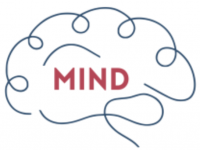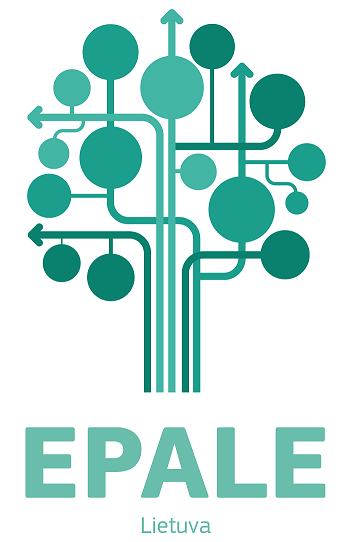

https://www.facebook.com/pages/Learn-to-Learn-for-Adult-Returners/218569714969594?ref=hl
Project description
L2L4AL abstract
Project addresses learning to learn (L2L) abilities of adult returners to learning. Adult returners group is characterized by lower secondary education, lack: of L2L skills, of flexibility to address the challenges of globalization, of self-confidence and motivation, of guidance systems, of “second chances” offered by the society, possibility of working only in unskilled positions, of attitude in active participation, few possibilities to continue their studies. Our goals are: 1) To find out the apprehension of the importance of L2L competence for adult learners on three levels: State, institutional (teachers) and individual. Each partner will make the review of the apprehension of L2L competence in the area of adult learning in your country: Analysis of strategic documents; Review of instruments for evaluation of L2L competence used in county; Survey of adult teachers and adult learners. Both groups will be involved in making surveys and presentations of National reviews in meeting of partners. 2) To find the means for increasing the apprehension of importance of L2L for adult learner in all three levels. Each partner will organize 2 meetings of interest groups. The results will be discussed in meeting of partners. 3) Developing the L2L competence of project participants. Each partner will organize laboratories for developing of L2L sub-competences. Learners will analyze how they can develop their learning abilities. Teachers will discuss how they can apply in their work the experience of laboratories. There are 8 Partners in the project., each of them has different peculiarities and it will allow to include different experience. For a total 205 Learners will be included in the activities of project. Both target groups will participate in mobility’s.
L2L4AL rationale
Technological and social changes in all areas of human activities force the majority of adults for continuous learning. Lifelong learning is important today and will be even more important in the future for implementing the goals and provisions of long term strategies and other program documents (Lisbon strategy (2000), Bologna (1999) and Copenhagen (2002) processes) regulating the role of education for increasing employability, for strengthening the intellectual potential of society in Europe Union.
Implementation of regulations raises new requirements for teaching of and learning for adults. Trying to ensure the quality of adult learning member States shall invest in designing and updating teaching and learning methods and materials, in establishing new means of development for upgrading qualifications and skills.
In this context the learning to learn competence of adult persons becomes one of most important basic competencies ensuring effective development of other key competencies. The importance of learning to learn competence is stressed in many documents of UNESCO, European Commission and Council of Europe.
UNESCO conference on adult education CONFINTEA in 1997 adopted “Agenda for the future” encouraged developing strategies which “provide opportunities for people to apply their own experience and knowledge in making diagnoses and choosing possible lines of action”. The Memorandum of Lifelong Learning (2001) stresses that most important now is that everybody learns to learn and is able to use the abundance of available information. Learning to learn is recognized as part of active learning alongside with motivation and ability to make decisions. The necessity of development of learning to learn competence is stressed in the Communication from the Commission “Adult learning: It is never too late to learn“ (2006).
Contemporary challenges raise great demands for adult learners: learning to learn or developing learning to learn abilities in order to learn faster and more efficient, using newest learning methods, acquiring new skills shaping attitudes, effectively applying innovations in practice and taking responsibility for the results of learning.
Strategic documents describe learning to learn competence as one of most important, but in practical terms it is not as widely discussed as for example literacy, learning of foreign languages or ICT. There are very few projects focusing of learning to learn competence – SKILLS, L2L and several others.
The Grundtvig partnership project „Development and recognition of key competences in disadvantaged groups” (2010 -2012) (Project number 2010-1-IT2-GRU06-13864 4) in which Lithuanian Association of Adult Education and Stephanstift Zentrum fuer Erwachsenenbildung were partners found that „learning to learn competence is very low in all disadvantaged groups (disabled people, women, senior, drop out, immigrants, unemployed). Despite being one of the most important it is the less known and understood. Very often it is hard for people to really understand what it is since they have never heard about it and so it is a completely new concept; even the formal education system does not refer to it or, at least, not in an explicit way“.
The adult returners, former drop outs and teachers working with this group are selected as the target groups for this partnership. Adult returners group is characterized by lower secondary education; lack of learning to learn skills; lack of flexibility to address the challenges of globalization; lack of self-confidence and motivation; lack of guidance systems; lack of “second chances” offered by the society; possibility of working only in unskilled positions; lack of attitude in active participation; few possibilities to continue their studies”. Teachers working with this group shall understand problems with learning skills of adult returners and find the ways of developing learning to learn competence while teaching their subjects.
We believe that this project addressing learning to learn abilities of adult returners to learning will contribute to solving above-mentioned problems and its results will increase the effectiveness of adult teaching and learning:
- The analysis of strategic documents of the partner countries will help to understand how learning to learn competence is apprehended by political (State) level.
- The analysis of apprehension of learning to learn competence in the institutional (teachers) level will show how teachers understand the importance of learning competence for self-development and for the development of learners.
- The analysis of the apprehension of learning to learn competence in individual learners level will show how adult learners understand the learning to learn competence and what do they lack for effective learning.
- Search for the means of developing the apprehension of importance of learning to learn competence in all three levels will show concrete steps which should be taken by adult education organizers and implementers to make learning to learn competence the real key competence.
- Involvement of teachers and learners into above-mentioned analyses and learning laboratories will directly contribute to the development of their learning to learn competences.
Projects partners
- Lietuvos suaugusiųjų švietimo asociacija (LSŠA, Lithuania)
- Stephansstift Zentrum fuer Erwachsnenbildung (Germany)
- Eesti Vabaharidusliit (Estonia)
- Associazione di promozione sociale (ARACNE, Italy)
- EPRALIMA Escola Profissional do Alto Lima, C.I.P.R.L (Portugal)
- Stichting PArticipatie in Diversiteit (PiD, Netherlands)
- Stitelsen Litorina folkhogskola I Karlskrona (Sweden)
- Adult Education Centre in Marijampolė







